30 Jun 2022
Last week, we were pleased to host participants for four days of symposia exploring themes around the Future Home, Co-design during Covid, and the 100 Year life. The Festival was the first conference event to be hosted in our home at the white Building, providing an opportunity to bring together researchers in the design for health community and explore smaller format events in this space. In this post, we summarise the week’s events.
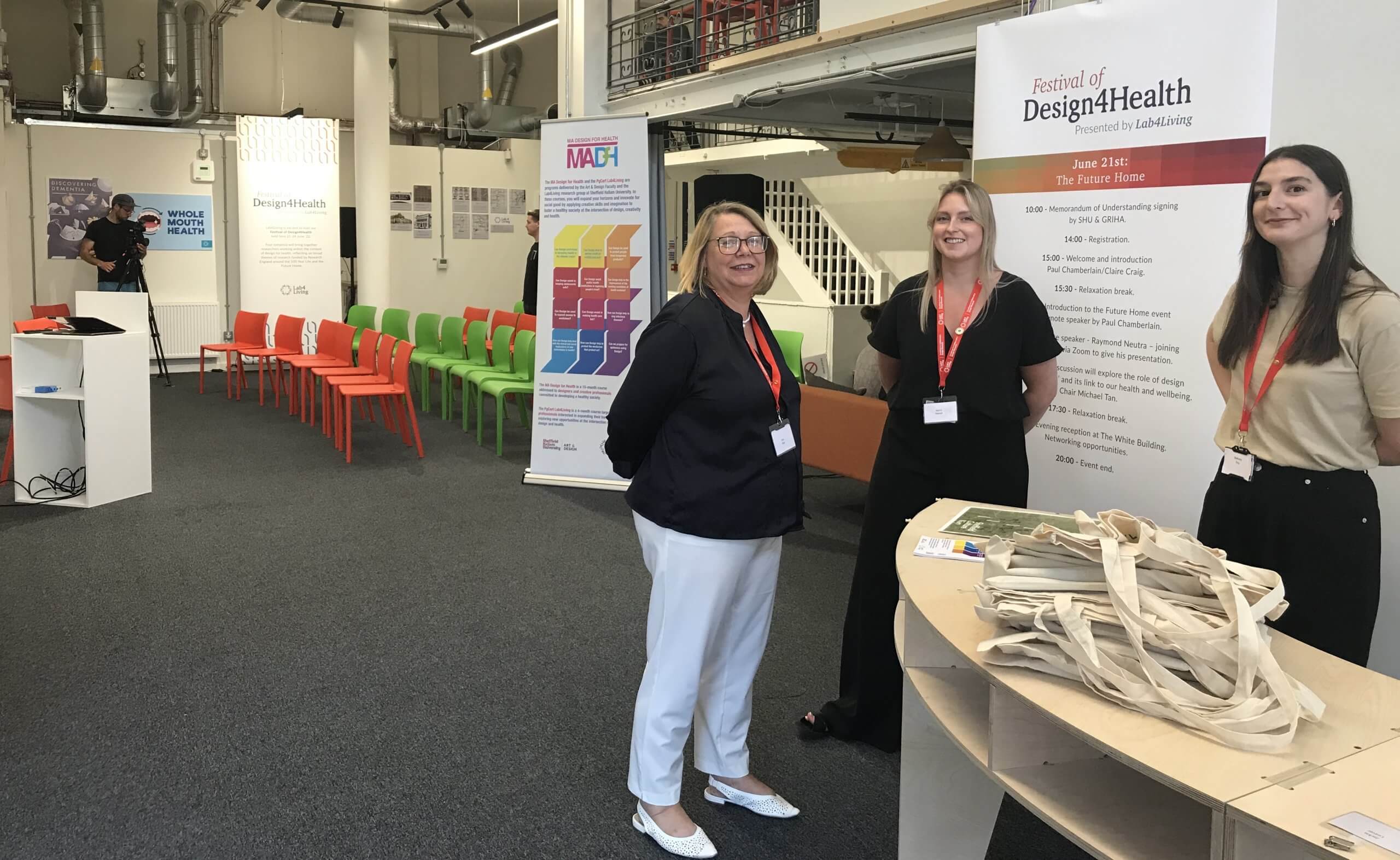
Day One
Day one’s activities focussed on the Future Home.
The festival began with the signing of a Memorandum of Understanding between Sheffield Hallam University and GRIHA Council. The agreement enables the two organisations to collaborate on projects which focus on improving quality of life in domestic spaces while minimizing overall ecological impact.
In the afternoon, Prof Paul Chamberlain introduced Lab4Living and the day’s focus on the Future Home.
We were joined online from California for a keynote by Raymond Neutra, son of architect Richard Neutra, who is using the Neutra legacy to promote research and responsible design as well as preserving landmark buildings.
Michael Tan chaired a panel discussion with Evangelia Chrysikou (The Bartlett School of Sustainable Construction, UCL), Akash Deep (GRIHA Council, New Delhi), Raymond Neutra and Paul Chamberlain, including exploring whether home health design might be a double-edged sword.
At a drinks reception in the evening, Vice Chancellor Sir Chris Husbands presented Patricia Moore with an honorary doctorate on behalf of Sheffield Hallam University. Patricia is an international pioneer of inclusive design (see Day Three).
Day Two
On Day two of the Festival, Joe Langley convened a day of events exploring codesign during Covid.
Co-design adaptions during COVID: a workshop to share experiences and explore what was lost and gained
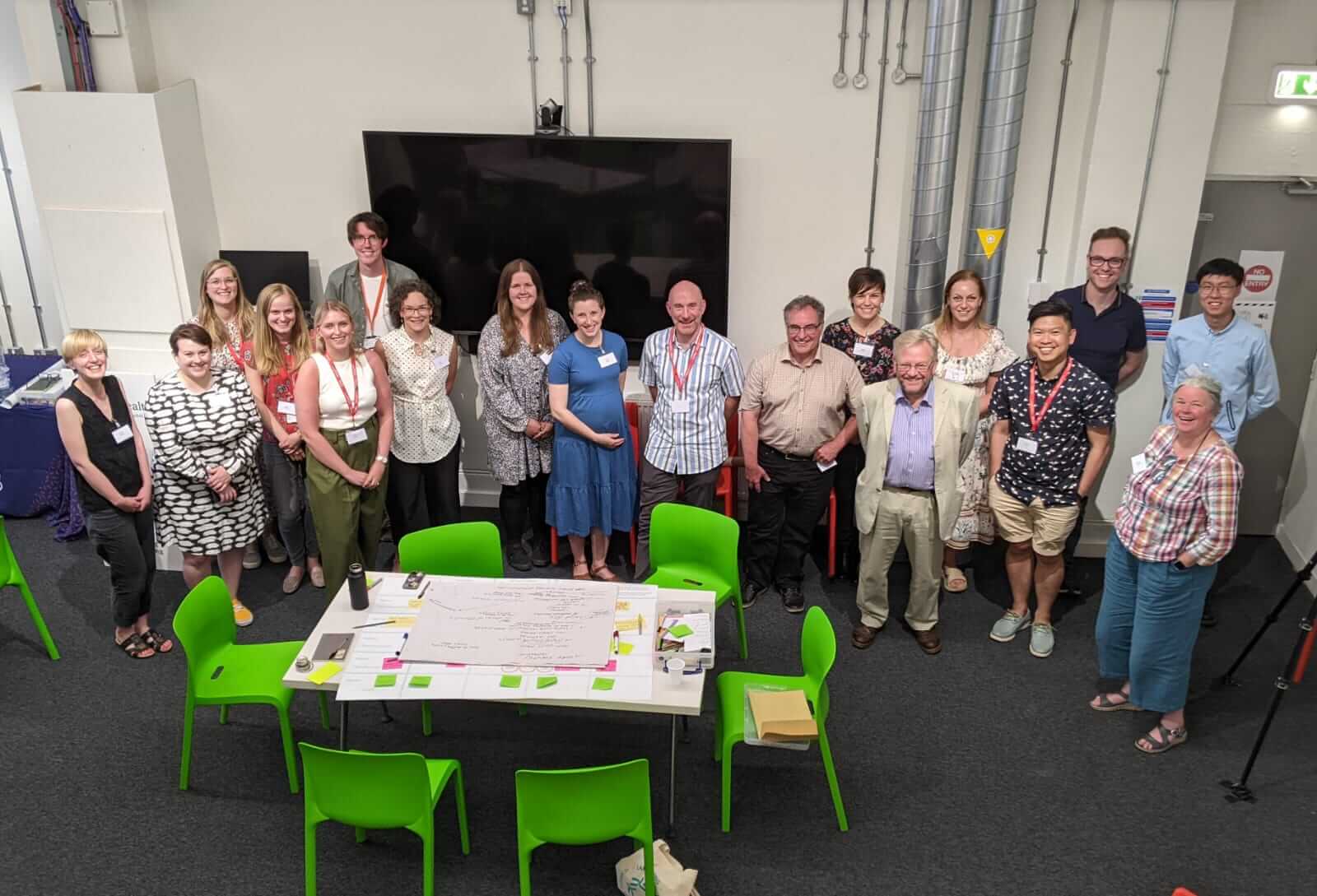
It was co-led with a group of researchers with shared research interests: Prof Kate Sellen (OCAD, Canada), Prof Sarah Walker (University of Washington, Seattle), Caylee Raber (Emily Carr, Health Design Lab) and Dr Paul Holyoke (Director of Saint Elizabeth Research Centre). Participants came from across the UK representing design and health services research disciplines, and service users.
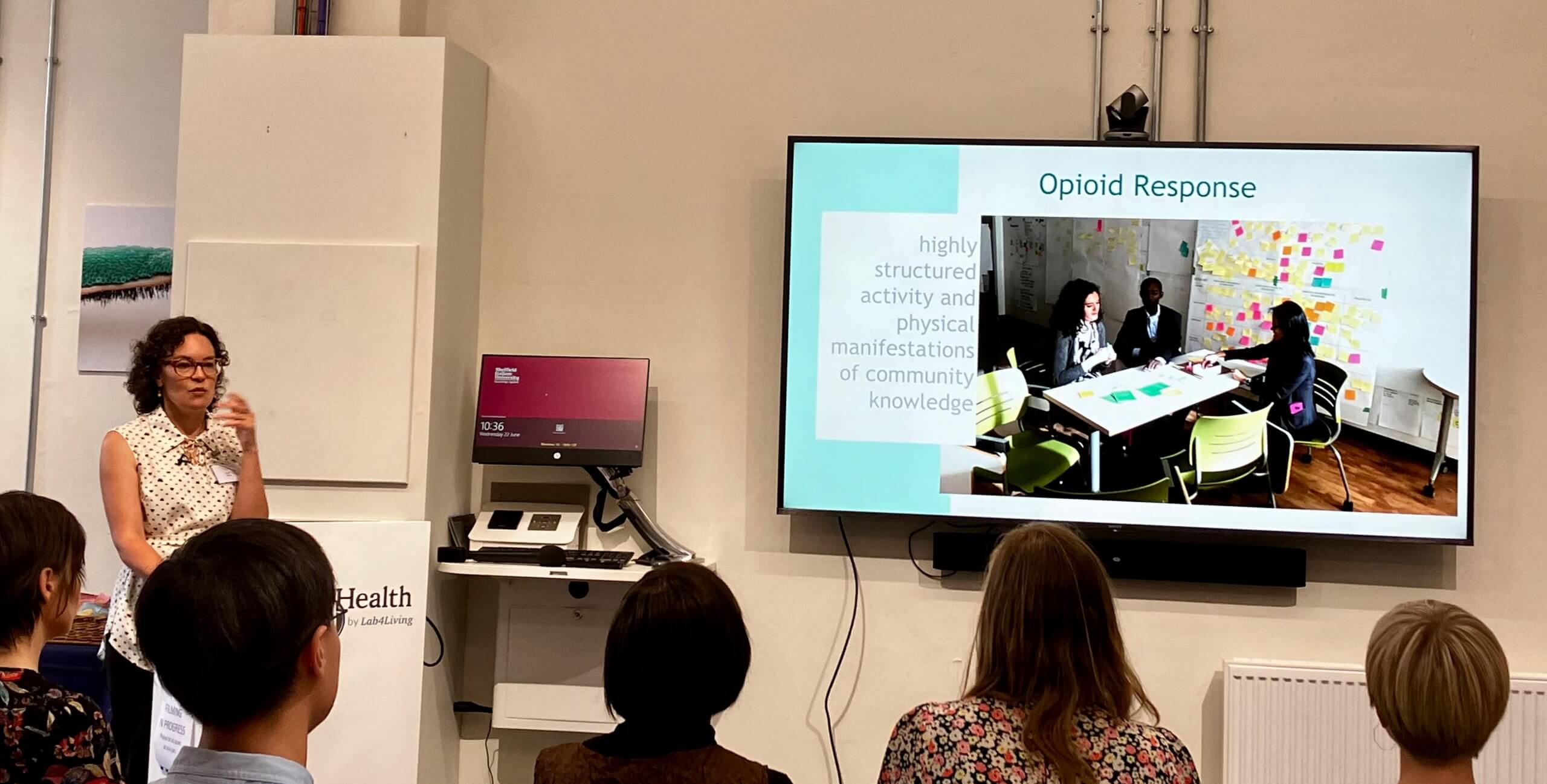
The day began with a keynote presentation from Prof Kate Sellen (OCAD). In the Story sharing session, participants shared experiences of ways we have purposefully adapted co-design practices and process to accommodate COVID. Using a set of images from recent adapted practices as provocations, we then collectively explored what had been lost and gained through these adaptations.
We are looking forward to taking this work forwards into a specific program of research in collaboration with participants through a community of practice.
Joe Langley
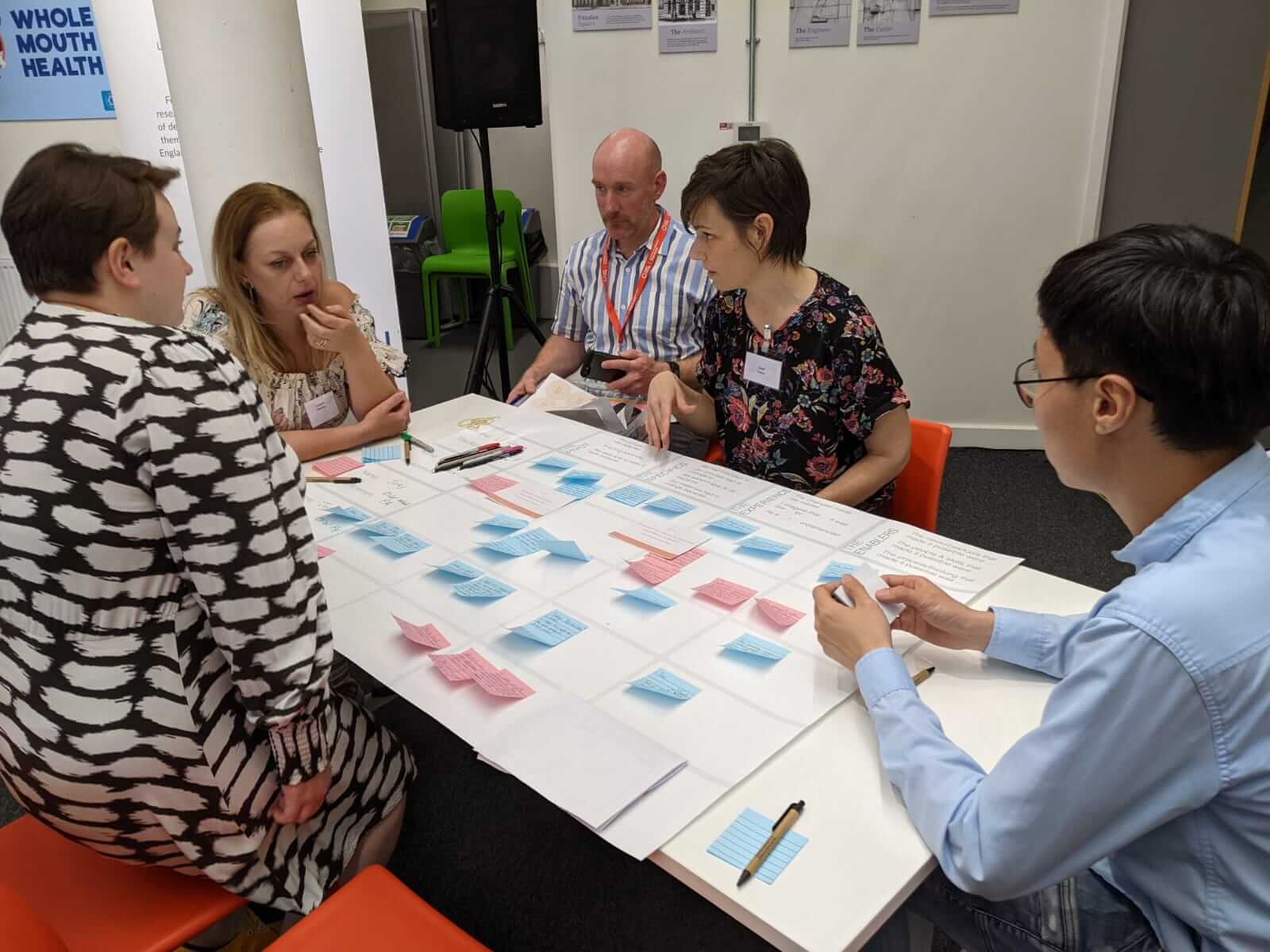
Day Three: The 100 Year Life
The third day’s activities were introduced by Prof Claire Craig, who welcomed the keynote address from Patricia Moore, pioneer of Inclusive design.
A panel discussion, chaired by Prof Claire Craig, with Debjani Chatterjee MBE (poet), Patricia Moore (Hon D.Arts, Sheffield Hallam University), Prof Gail Mountain (Chair in Applied Dementia Studies, Bradford), Bill Noble (Marie Curie) explored the role design has played in reinforcing and stereotyping what we understand by ageing and what it means to be old.
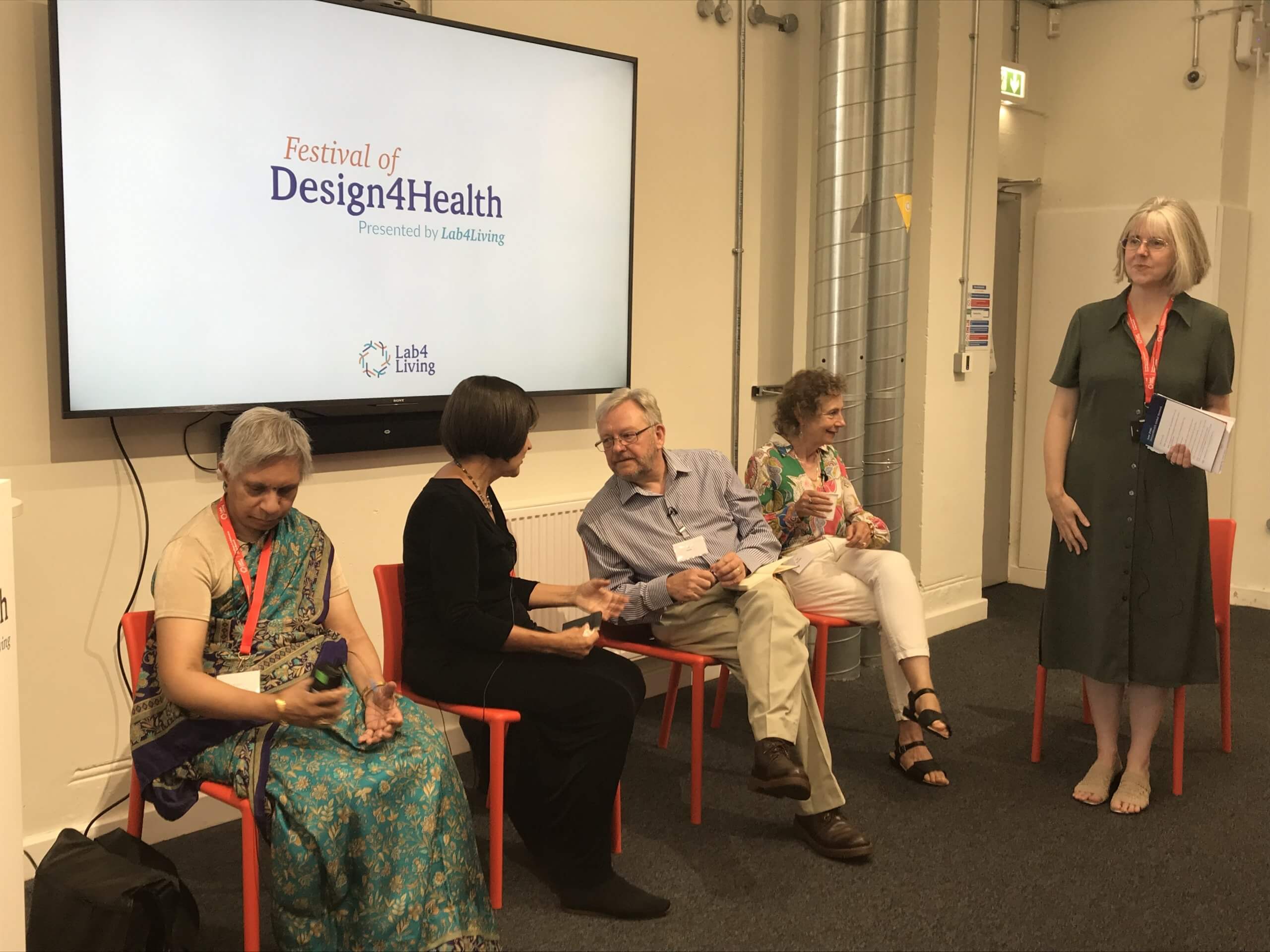
During the afternoon, we were pleased to host a poetry reading with Debjani Chatterjee, on themes of ageing. This was followed by the screening of four short films.
Day Four: Launch the Design4Health Global Research Network
On the final day of the Festival, Paul Chamberlain and Claire Craig launched the Design4Health global network. Following this, Graham Nesbitt guided participants through a series of creative activities to shape the network’s visual identity.
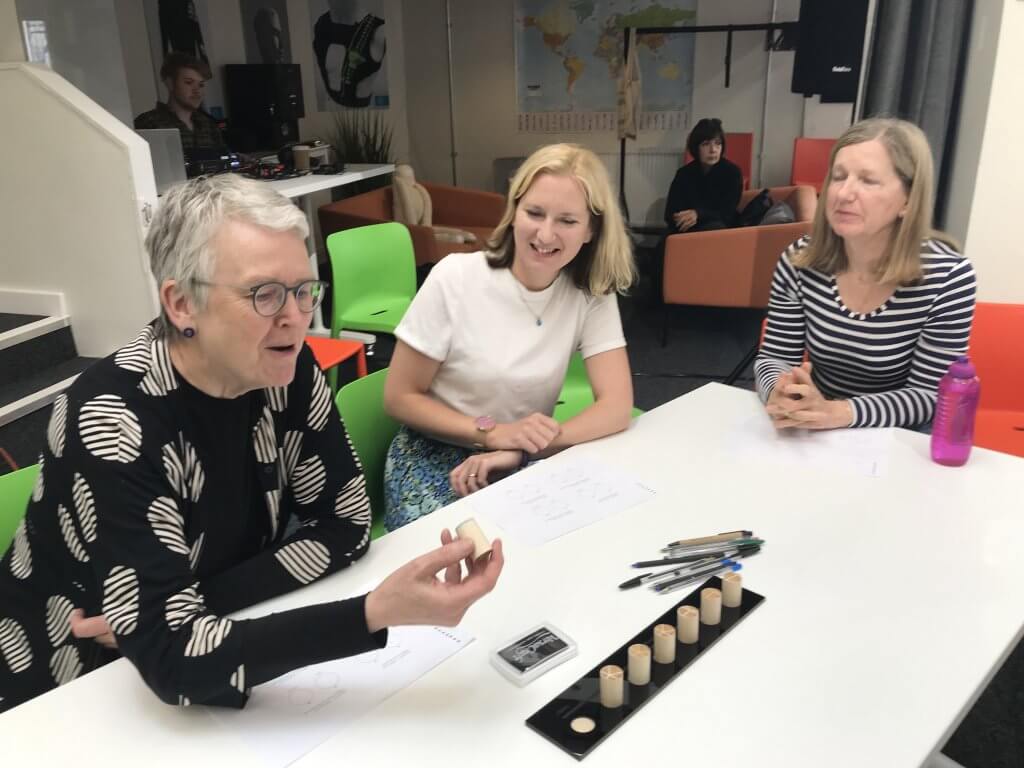
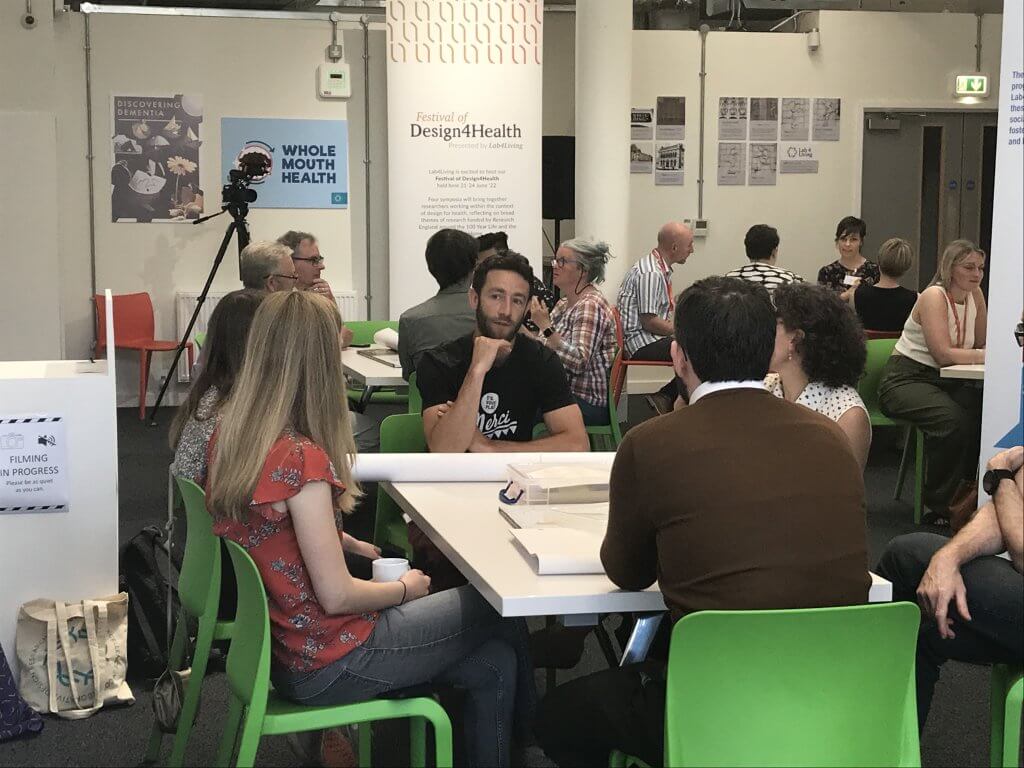
The development of the Global Network reflects a broader enquiry with partners at Good Health Design in New Zealand and other international colleagues. This research asks questions about how we continue to build a design4health community and disseminate our work in a post-covid world which gives proper recognition to net-zero and the importance of sustainability.
The Design4Health Festival has formed part of this enquiry, representing an important first step of bringing local and global design4health communities together in a physical space, renewing old collaborations and creating new connections.
Over the next year we will be building on our learning from this event as we move forward. Please watch this space!
 to top
to top
